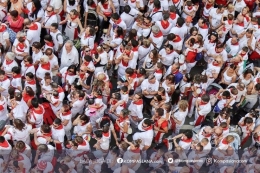Choosing the right university and program is a critical decision that shapes one’s academic and professional journey. For me, the National University of Singapore (NUS) embodies excellence, innovation, and cultural diversity. As one of Asia’s leading universities, NUS offers a unique environment that combines rigorous academic achievements with real-world applications. My decision to pursue a Master of Arts in English Language and Linguistics at NUS stems from a deep passion for exploring how language shapes human interaction, culture, and identity. I believe that NUS, with its world-class resources and dynamic intellectual community, is the ideal place to turn this passion into meaningful contributions to the field of linguistics.
1. Reasons for Choosing the Program and NUS
The Master of Arts in English Language and Linguistics program at NUS aligns perfectly with my academic interests and career aspirations. During my undergraduate studies in English Language Education, I developed a strong foundation in analyzing the structure of language and its sociocultural implications. NUS’s program offers the opportunity to deepen this foundation through advanced linguistic theories and innovative methodologies.
I also chose NUS because of its proximity to Indonesia. I feel that if I were to pursue studies in a distant country, it might be difficult to convince my parents to support the decision. Being in Singapore allows me to study abroad while staying close to home, providing reassurance to my family. Additionally, studying in Singapore excites me as I plan to explore the country, enjoy its vibrant atmosphere, and learn about its unique cultural identity.
I discovered that the NUS curriculum is particularly engaging, as it emphasizes both theoretical frameworks and applied linguistics. Modules like “Language and Society” and “Cognitive Linguistics” resonate with my interest in understanding how language reflects and shapes social norms, individual cognition, and cross-cultural interactions. Furthermore, the program’s emphasis on research equips students to tackle real-world challenges, such as language preservation, policymaking, and technological advancements in linguistics.
Singapore’s multilingual and multicultural society enhances this academic experience. The country’s linguistic landscape, characterized by the coexistence of English, Mandarin, Malay, and Tamil, provides a dynamic context for studying language in action. Situated at the heart of this environment, NUS offers unparalleled opportunities to observe, analyze, and engage with these linguistic phenomena.
Additionally, NUS's commitment to fostering global perspectives aligns with my own aspirations. The university's partnerships with international institutions, access to global conferences, and emphasis on interdisciplinary collaboration create an ideal environment for intellectual growth and innovation. These opportunities, combined with the mentorship of esteemed faculty, will allow me to develop my academic skills further and contribute to impactful research in linguistics.
2. Personal Goals: Plans and Targets After Graduation
My primary goal is to leverage my expertise in linguistics to contribute to education, policy, and cross-cultural understanding. Upon completing the master’s program at NUS, I plan to pursue a career in language education policy, particularly in promoting bilingual or multilingual education in linguistically diverse regions.
Language is a powerful tool for empowerment. By developing policies that prioritize equitable language education, I hope to bridge gaps in educational opportunities, especially for marginalized communities. I envision collaborating with governmental and non-governmental organizations to create language curricula that celebrate linguistic diversity while fostering unity and mutual understanding.
Beyond policy work, I aspire to contribute to academia as a lecturer and mentor. Teaching is not just about transferring knowledge; it is about inspiring curiosity, critical thinking, and a lifelong passion for learning. I aim to create an inclusive classroom environment where students feel encouraged to explore complex linguistic questions and challenge existing paradigms.







